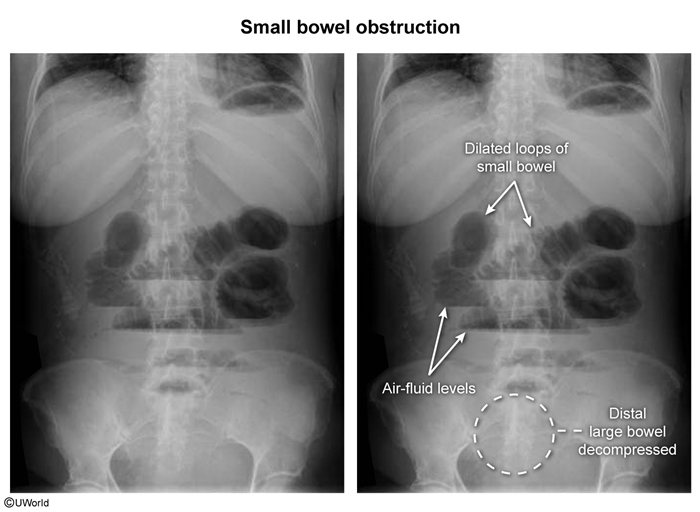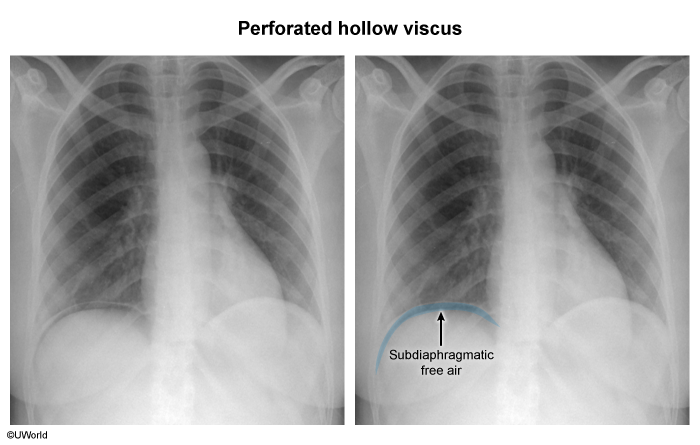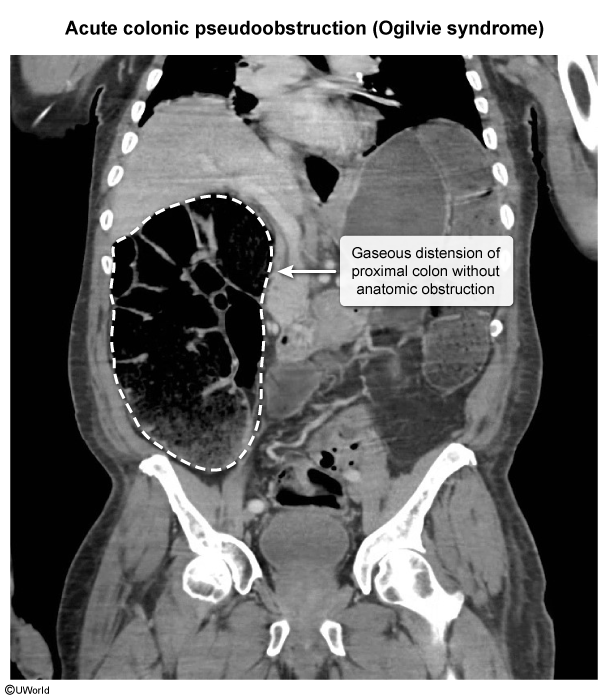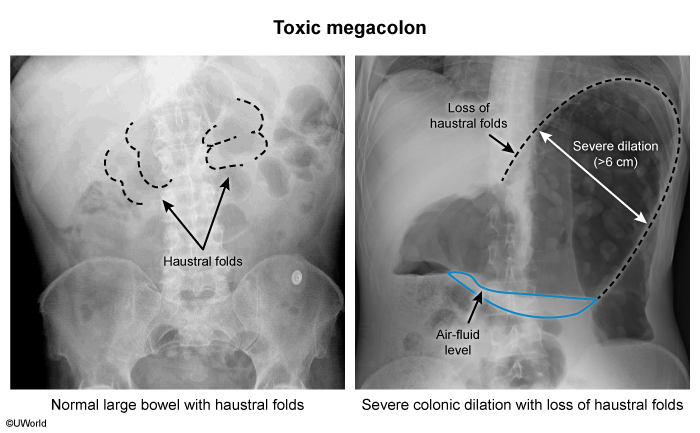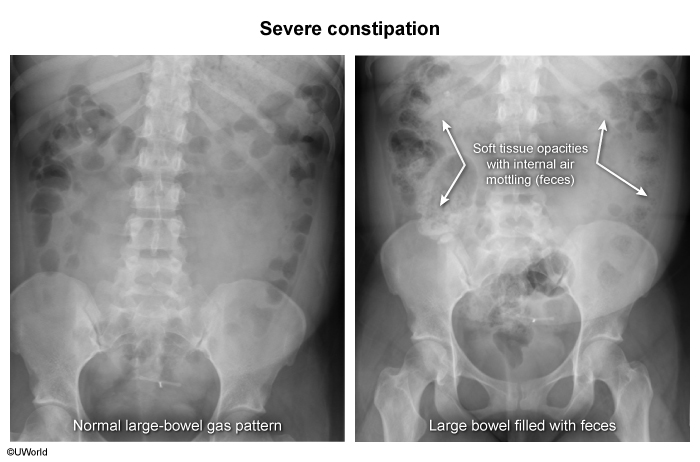Paralytic Ileus
Article Sections
Introduction
Paralytic ileus is a functional defect in bowel motility, which slows or stops the transit of intestinal contents without a physical obstruction. It typically occurs after abdominal surgery but may also be associated with medications, trauma, and serious medical conditions (eg, sepsis). Diminished peristalsis leads to the accumulation of gas and fluid in the bowel, causing abdominal distension, discomfort, nausea, and hypoactive/absent bowel sounds. Abdominal imaging typically reveals uniformly dilated, gas-filled loops of small and large bowel. Management is conservative and includes bowel rest.
Pathogenesis and risk factors
Paralytic ileus involves the reduction or complete cessation of intestinal peristalsis, which limits the forward propulsion of intestinal contents and leads to bowel dilation. It is a functional obstruction that occurs in the absence of any anatomic or mechanical blockage (eg, mass, adhesions). The condition may be triggered by:
Continue Learning with UWorld
Get the full Paralytic Ileus article plus rich visuals, real-world cases, and in-depth insights from medical experts, all available through the UWorld Medical Library.
Unlock Full AccessImages
